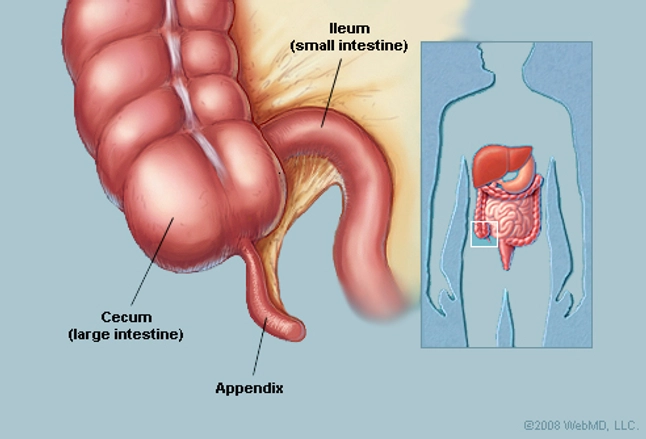Scientists find the reason why humans have appendicitis, which is a small, thin tube attached to the colon.Although all this time the appendix is considered as an organ that has no function, researchers at Midwestern University called the organ acts as a container of beneficial bacterial intestines for the body.
Associate Professor, Heather Smith, studied the gut and environmental characteristics of 533 different mammals. This is done as part of research on the evolution of the appendix.
A number of animals that have appendicitis are primates, wombats, and rabbits. While other animals such as dogs and cats do not have these organs.
the researchers found that the appendix had evolved 30 times separately in different species, and almost never disappeared from the evolutionary lineage after it emerged.
Animals with appendicitis have concentrations of lymphoid gland tissue in their intestines. According to researchers, it plays an important role in the immune system.
The tissue can stimulate a number of good bacteria that can be stored in the appendix. It makes not all good bacteria disappear when human experience diarrhea.
"Those whose appendix has been taken will take longer to recover from the disease, especially for those whose good bacteria have come out of the body," Smith said when explaining the function of the appendix.
The average adult appendix has a length of five to 10 centimeters, and a diameter of six to eight millimeters.
About 40,000 people in the UK are hospitalized due to appendicitis for each year.
Not yet clear what causes the inflammation. But doctors believe it can happen when the pathway into the bag of appendicitis is blocked.


Post a Comment